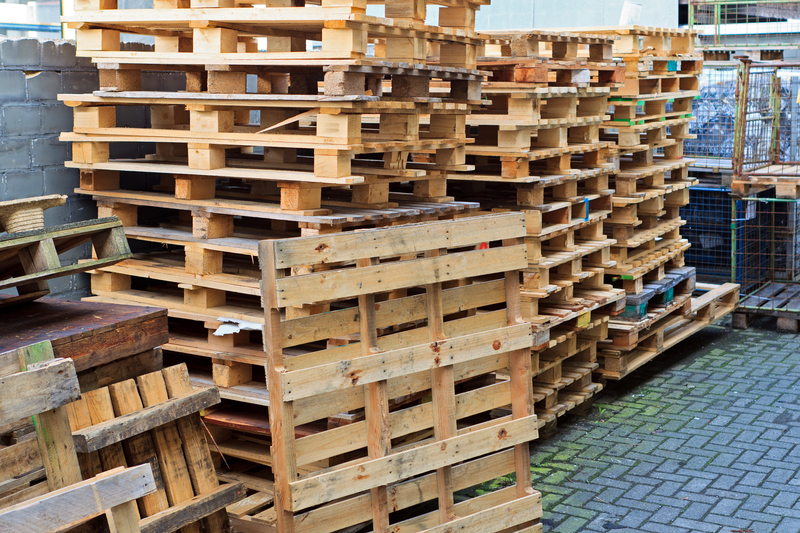10 Crucial Ways to Lower Your Green Waste Output
In the quest for a more sustainable lifestyle, reducing green waste output is essential. Green waste includes organic materials like grass clippings, leaves, and kitchen scraps. By minimizing these types of waste, you can contribute significantly to a healthier environment. In this article, we'll explore 10 effective ways to reduce your green waste footprint and adopt eco-friendly practices.
1. Compost Your Own Waste
One of the most effective ways to cut down on green waste is to compost at home. Composting transforms organic materials into nutrient-rich soil. Here's how you can start:
- Create a compost pile or bin in your backyard.
- Add kitchen scraps like fruit peels, vegetable cuttings, and coffee grounds.
- Layer your compost with grass clippings and dry leaves for optimal decomposition.
- Ensure proper aeration by turning the compost regularly.
By composting, you'll reduce the need for chemical fertilizers and decrease landfill waste.

2. Practice Grasscycling
Grasscycling involves leaving grass clippings on your lawn after mowing. These clippings decompose quickly and naturally enhance the soil quality. Follow these tips:
- Set your lawn mower to a higher blade setting to create smaller clippings.
- Mow your lawn regularly to avoid large clippings.
- Ensure your lawn is dry to prevent clumping.
This practice reduces the need for commercial fertilizers and lowers the waste sent to landfills.
3. Opt for a Leaf Mulcher
Utilize a leaf mulcher to break down leaves into smaller pieces that can be spread over garden beds as mulch. Mulching retains soil moisture, moderates temperature, and suppresses weeds, reducing the need for additional resources. Here's how:
- Collect fall leaves using a rake or leaf blower.
- Run the leaves through a mulcher to create mulch.
- Spread the mulch evenly across your planting areas.
By turning leaves into mulch, you recycle nature's nutrients back into the soil.
4. Plan Your Garden
Effective garden planning can significantly decrease waste. Aim for a low-waste gardening strategy by:
- Choosing native plants that require less maintenance and water.
- Selecting perennial plants that return year after year.
- Planting according to space availability to minimize overgrowth.
With thoughtful planning, you can reduce pruning needs and potentially lower plant mortality rates.
5. Recycle and Upcycle Organic Waste
Recycling and upcycling organic materials can lead to innovative ways to use what would otherwise become waste. Consider these options:
- Use fruit and vegetable scraps to create natural dyes for fabrics or crafts.
- Create DIY air fresheners using citrus peels.
- Feed kitchen scraps to chickens or add them to worm farms for rich compost.
Think creatively about how you can reduce, reuse, and recycle organic materials within your home.
6. Implement Permaculture Principles
Permaculture focuses on sustainable and self-sufficient agricultural ecosystems. By adopting permaculture principles, you can reduce waste by:
- Designing gardens that mimic natural ecosystems.
- Creating symbiotic plant relationships to enhance growth.
- Implementing water-saving techniques like rainwater harvesting.
This long-term strategy not only minimizes waste but also creates a resilient ecosystem around your home.
7. Cook with Minimal Food Waste
Be mindful of how you prepare and consume food. Simple practices to minimize food waste include:
- Planning meals efficiently to use up all fresh ingredients before they spoil.
- Storing food correctly to maximize its shelf life.
- Using leftovers in new dishes to prevent waste.
By reducing kitchen waste, you contribute less organic material to landfill sites.
8. Participate in Community Garden or Green Initiatives
Engage with local community gardens or green initiatives to extend your waste-reduction efforts beyond your home. Benefits include:
- Sharing resources such as tools and compost facilities.
- Exchanging produce and ideas with other gardeners.
- Learning sustainable practices from experienced community members.
These collaborations can significantly reduce overall community green waste.

9. Educate and Inspire Others
Encourage others to adopt sustainable practices by sharing your journey. This can be accomplished by:
- Hosting workshops on waste reduction techniques.
- Blogging about your experiences and insights on green living.
- Organizing community clean-up events to highlight the impact of green waste.
By inspiring others, you magnify your positive impact on the environment.
10. Regularly Evaluate and Adapt
Finally, continually evaluate your practices and adapt as necessary. Consider the following:
- Review your waste output regularly to identify areas for improvement.
- Stay updated on new sustainable technologies and practices.
- Set achievable goals and celebrate each milestone.
Continuous improvement ensures your efforts remain effective and impactful.
Conclusion
Lowering your green waste output requires dedication and a willingness to change habits. By implementing these 10 crucial strategies, you can significantly reduce your environmental impact and contribute to a more sustainable future. Remember that every small effort counts, and collectively, we can make a difference by embracing eco-friendly practices in our daily lives.